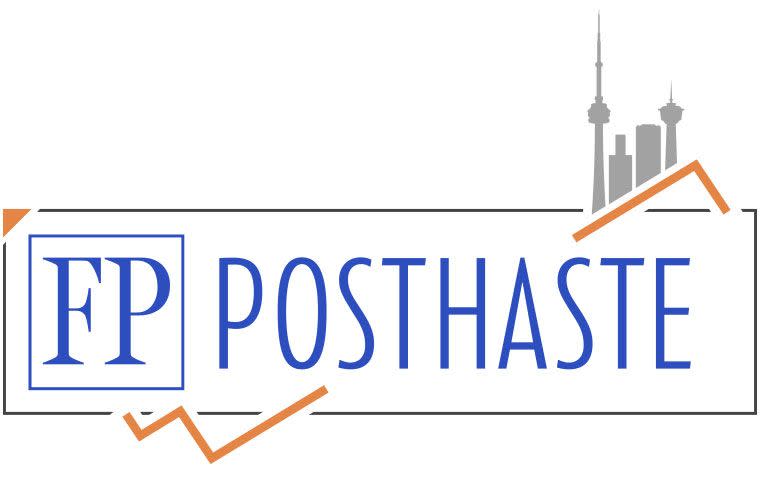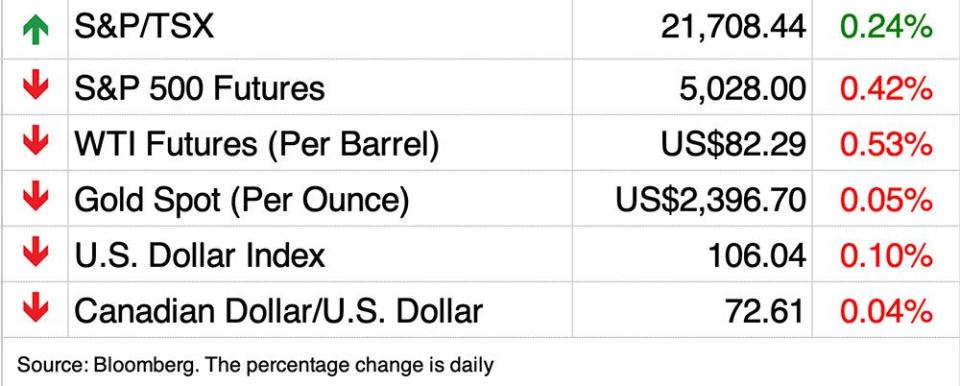Posthaste: Canadians boosting down payments with family money to enter housing market


A majority of Canadian home buyers are relying on family money to boost their down payments in order to enter the housing market amid high borrowing costs, according to a recent survey by Zolo.
The 2024 Canada Housing Market Report, which interviewed 800 Canadians who bought homes in 2023, found that 68 per cent used money from relatives to cover at least part of their down payment. Of those, 48 per cent used money from parents or relatives and 20 per cent used money from an inheritance.
An increasing number of Canadians are also pursuing co-ownership to pool resources and enter markets they otherwise would not be able to afford. The study found that 35 per cent bought a home with either family (28 per cent) or friends (seven per cent). The rest bought homes with their partners (38 per cent), by themselves (22 per cent) or with others (five per cent).
Joint-ownership, however, has some risks, cautions mortgage expert Angela Calla. She advises that homebuyers consider the long-term implications before choosing co-ownership, such as what happens if one person wants to sell and the other doesn’t, or if one person’s romantic situation changes.
She says it’s essential to hire a real estate lawyer to know your rights and lay out the steps that will be taken in case of a disagreement. “You need to be able to discuss and document the hard stuff with a lawyer before getting an approval,” Calla said in the report.
More homebuyers are also searching for the best rates, with 34 per cent shopping for a mortgage lender in 2023 compared to just 26 per cent in 2022. Thirty-eight percent are using mortgage brokers to secure the lowest possible interest rate, making them the fourth-most-used real estate professionals in 2023.
“Working with a broker can lead to cost savings and better long-term financial outcomes,” Calla said. “Date the rate, marry the house. You don’t need to complicate it. Time in the market will always outweigh timing the market.”
Homebuyers are also having to compromise on their must-have features in order to afford a home. The most important features to buyers were location (53 per cent), type of home (53 per cent) and square footage (50 per cent).
Ironically, those were also some of the features that buyers compromised on the most, with size of certain rooms (36 per cent), square footage (34 per cent) and type of home (32 per cent) leading the way.
“People should not expect their next home to be their dream home, but they could eventually get there through deferral of gratification and making good financial decisions,” real estate expert Daniel Foch said in the report.
Whether the trend of using creative strategies to enter the housing market will continue into 2024 depends on when and if the central bank reduces interest rates, he says. “I think the important theme in 2024 is how long we spend at current interest rates and what happens to the economy that makes the Bank of Canada cut rates,” said Foch.
Sign up here to get Posthaste delivered straight to your inbox.

It’s a mixed bag for mortgage shoppers this week. Leading nationally advertised fixed rates remain under five per cent for default-insured borrowers. For example, you’ll find 4.84 per cent on red-hot three-year terms. If you’re rolling without insurance, you’re looking at 5.19 per cent, which still doesn’t break the bank — relative to the alternatives. On the floating-rate scene, we’re seeing shy improvements. Still, variables won’t start flying off the shelves until borrowers see proof of Bank of Canada rate cuts. For insured borrowers, however, there’s a sweet deal on adjustable-rate mortgages with leading rates at prime minus 1.30 per cent (5.90 per cent). — Robert McLister
National Bank of Canada annual shareholders meeting
Today’s data: Construction investment for February
Earnings: Procter & Gamble Co., American Express Co., Schlumberger NV

U.S. inflation boogeyman still looms over Canadian mortgage market
‘Don’t drag your feet’: Some cottage owners face big decision after budget’s tax change
Gold prices keep smashing records giving miners hope they can escape the doldrums
All that glitters isn’t gold when it comes to quick fixes for our money. A lot of people turn to what they believe will be a quick fix when attempting to improve their credit, but when it has taken months or years to get to the point they’re at, it will take months or years to get back on track. A so-called quick fix can even prolong the time it takes and cause more trouble. Sandra Fry looks at three common misconceptions she hears as a credit counsellor and what you really need to know. Find out more.
Are you worried about having enough for retirement? Do you need to adjust your portfolio? Are you wondering how to make ends meet? Drop us a line at aholloway@postmedia.com with your contact info and the general gist of your problem and we’ll try to find some experts to help you out while writing a Family Finance story about it (we’ll keep your name out of it, of course). If you have a simpler question, the crack team at FP Answers led by Julie Cazzin or one of our columnists can give it a shot.
McLister on mortgages
Want to learn more about mortgages? Mortgage strategist Robert McLister’s Financial Post column can help navigate the complex sector, from the latest trends to financing opportunities you won’t want to miss. Read them here.
Today’s Posthaste was written by Noella Ovid, with additional reporting from Financial Post staff, The Canadian Press and Bloomberg.
Have a story idea, pitch, embargoed report, or a suggestion for this newsletter? Email us at posthaste@postmedia.com.
Bookmark our website and support our journalism: Don’t miss the business news you need to know — add financialpost.com to your bookmarks and sign up for our newsletters here.

 Yahoo Finance
Yahoo Finance 




